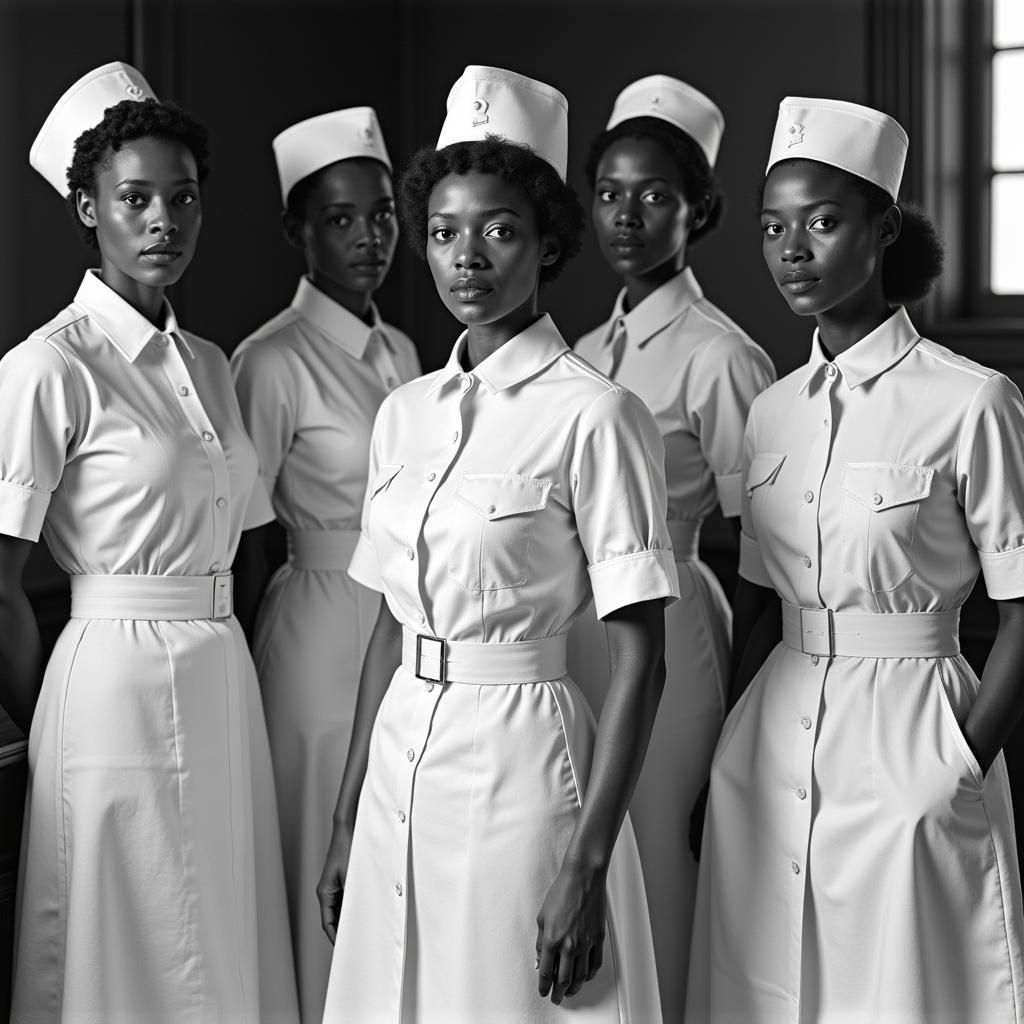African Female Serial Killers: A Look at the Dark Side of African History
The African continent is a vast and diverse place with a rich history, culture, and heritage. However, like any other part of the world, Africa also has a dark side, which includes the stories of female serial killers. While male serial killers are more commonly documented, women have also played a role in some of the most gruesome crimes in African history. This article delves into the lives and crimes of these enigmatic figures, exploring the motivations behind their actions and the impact of their crimes on African societies.
Understanding the Prevalence of Female Serial Killers in Africa
It’s important to acknowledge that data on female serial killers in Africa is limited. Official records are often incomplete, and many crimes remain unsolved. This makes it challenging to establish a comprehensive understanding of the prevalence of female serial killers on the continent. However, available information suggests that while they might not be as numerous as their male counterparts, their presence and impact on society are undeniable.
The Complex Motivations of African Female Serial Killers
Unlike their male counterparts, African Female Serial Killers often had complex motivations rooted in their personal experiences, societal pressures, and cultural norms. These motivations varied greatly depending on the individual and the context of their crimes, but some common themes emerge:
1. Revenge and Retribution:
Many female serial killers in Africa acted out of a sense of revenge, seeking retribution for personal grievances or injustices they had suffered. This motivation was often fueled by experiences of abuse, betrayal, or neglect.
“These women were often driven by a deep-seated need to right a wrong, to punish those who had wronged them or their loved ones.” – Dr. Amina Hassan, Professor of Criminal Psychology at the University of Nairobi
2. Power and Control:
Some female serial killers used their crimes to gain power and control over their victims, often targeting vulnerable individuals or those they felt superior to. This motivation might be linked to a desire for dominance or a desire to exert control over their lives and circumstances.
3. Financial Gain:
In some cases, female serial killers were motivated by financial gain. This was often the case when they targeted wealthy individuals or those with valuable possessions. These crimes were often meticulously planned and executed, demonstrating a level of cunning and ruthlessness.
Notable Cases of African Female Serial Killers
Here are some notable cases of African female serial killers that have left an indelible mark on the continent’s history:
1. “The Black Widow of Nairobi”: This unnamed woman was responsible for the deaths of several wealthy men in Nairobi during the 1980s. She would charm and seduce her victims before poisoning them and stealing their assets.
2. “The Witch Doctor of Johannesburg”: In the early 2000s, a woman known as “The Witch Doctor” was accused of killing several young women in Johannesburg. Her crimes were fueled by a belief in witchcraft and her desire to extract body parts for use in rituals.
3. “The Serpent of Senegal”: This woman, whose real name is unknown, terrorized Senegal in the 1990s. She was known for her seductive beauty and her ability to lure men into her home, where she would kill them and bury their bodies in her garden.
The Impact of Female Serial Killers on African Societies
The crimes of these women have left a lasting impact on African societies, raising questions about gender, power, and violence. These cases have also challenged societal norms and assumptions about the nature of female criminality. They have prompted discussions about the role of culture, tradition, and social conditions in shaping the motivations and actions of these women.
Why Studying African Female Serial Killers Matters
The stories of African female serial killers offer a unique perspective on the complexities of crime and human nature. They expose the hidden aspects of African societies and shed light on the factors that contribute to criminal behavior.
By examining these cases, we can gain a deeper understanding of the societal and psychological forces that drive these individuals to commit such heinous crimes. This knowledge can be used to develop strategies for preventing similar crimes in the future and providing support to vulnerable individuals who might be at risk.
FAQs
1. Why are female serial killers less common than male serial killers?
While there is no single answer, factors like societal expectations, access to power, and gendered stereotypes might play a role.
2. Are there any similarities between African female serial killers and female serial killers in other parts of the world?
Yes, many of the motivations and patterns found in African female serial killers are similar to those found in other parts of the world, such as revenge, financial gain, and a desire for power.
3. How do African cultures view female serial killers?
Cultural attitudes towards female serial killers can vary significantly across the continent. Some societies might perceive them as witches or evil spirits, while others might view them as victims of societal pressures or trauma.
4. What can be done to address the issue of female serial killers in Africa?
Addressing this issue requires a multifaceted approach, including promoting gender equality, strengthening law enforcement, and addressing root causes like poverty, abuse, and social inequality.
5. Are there any organizations dedicated to studying African female serial killers?
While there isn’t a specific organization dedicated solely to this subject, organizations like the African Institute for Criminology and the Pan-African Criminological Association conduct research on crime and violence across the continent, which might include case studies of female serial killers.
 African Female Serial Killers: A Historical Perspective
African Female Serial Killers: A Historical Perspective
Conclusion
While the stories of African female serial killers are dark and disturbing, they offer a critical lens through which to examine the complexities of human behavior, societal norms, and the forces that contribute to crime. By understanding these cases, we can gain a deeper appreciation for the nuances of African history and the challenges that still exist in addressing issues like gender-based violence and social injustice.


